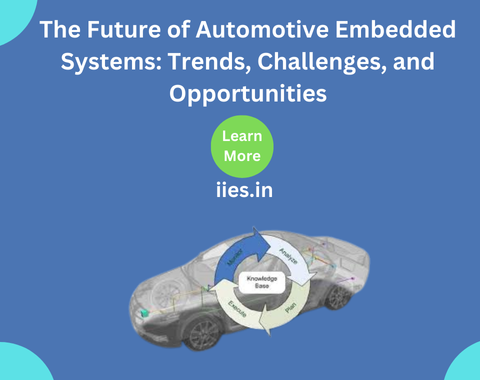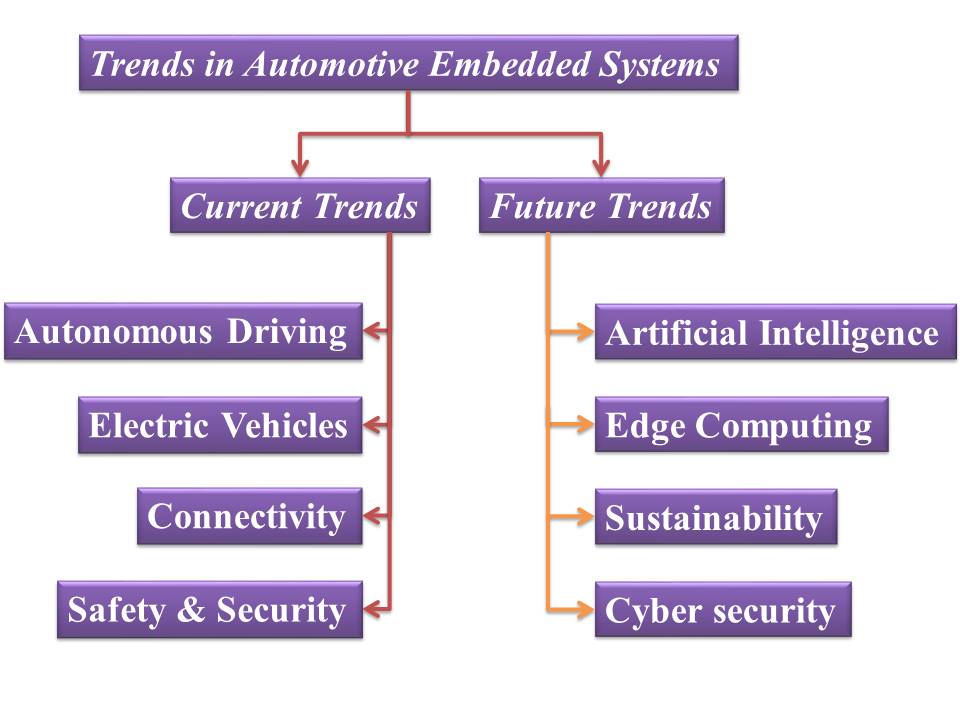Autonomous Driving
Autonomous vehicles illustrate a key innovation within the automotive sector, and the integration of embedded systems in autonomous vehicle is crucial for the operation of this technology. Self-driving vehicles depend significantly on the data which is a combination of sensors, radar, cameras, and advanced algorithms to accelerate real-time decision-making, for fulfilling safe and reliable transportation requires these systems to work together seamlessly
Electric Vehicles
The growth of electric vehicles is notable trend that is playing a vital contribution to determining outcome is on the basis of rise in development of automotive embedded systems. A diverse set of mechanisms is imperative for electric vehicles (EVs) to adequately manage battery lifespan, charging efficiency, and overall performance. The supervision of key functions in electric vehicles is severely counts on embedded systems, which assure that these vehicles operate efficiently, reliably, and safely on the road.
Connectivity
Modern cars heavily stand on connectivity, and automotive embedded systems are needful for furnishing this capability. Modern automobiles are supplied to connect with multiple devices and systems, internally and externally, thereby simplifying navigation and entertainment functionalities. In-vehicle connectivity allows manufacturers to supervise remote diagnostics and oversee software updates; it is possible to enhancing the overall safety, luxury experience for both drivers and passengers
Safety & Security
There is a growing focus on vehicle safety features within the automotive industry. Embedded systems will play vital role in integrating a variety of safety functionalities, including lane departure warning, automatic emergency braking, and adaptive cruise control. The successful fulfilment of these features depends on the engagement interaction of actuators, sensors, and embedded software to detect and prevent potential threats in real-time
Future Trends
Artificial Intelligence
Automotive embedded systems progression is being significantly influenced by artificial intelligence (AI). A variety of innovations can be sustains by the AI technology, which enables both self-driving systems and enhancements designed to support drivers on the road. Embedded systems can assess significant data from a variety of sensors and inputs and utilized by artificial intelligence, it can be useful to facilitating real-time decision-making that boosts the performance, safety, and efficiency of vehicles.
Edge Computing
Engineers are adopting embedded systems to refine analytics at the edge of the network and to enable more sophisticated processing, with the fast-paced development of edge computing, this strategy can highly facilitate the introduction of advanced real-time features and lower latency. It is essential for improving overall responsiveness
Sustainability
Due to the fossil fuel reliance and carbon dioxide output automotive industry has encountered serious environmental challenges consistently. In response 74% of OEMs now having established plans for electric vehicles, sustainability has emerged as a strategic imperative for every entity in the industry.
To enhance various sustainability aspects of vehicles, including emissions, recyclability, and energy efficiency an automotive embedded systems can be extensively utilized. These systems will allow more sustainable future by decreasing the environmental effects associated with vehicle use.
Cyber security
The risk of cyber-attacks is also on the rise with the growing connectivity of vehicles. Automotive embedded systems developers need to prioritize security investments to protect connected vehicles from potential threats posed by cybercriminals and hackers. Developing systems that feature strong firewalls, encryption, and authentication protocols, ensuring a high level of security while integrating vital protective measures
As the automotive industry undergoes transformation, automotive embedded systems are in a perpetual state of advancement, which is responding to the latest trends and emerging challenges. To ensure vehicles safety, efficient, and enjoyable to operate and also to meet the goals of sustainable development developers, embedded systems engineers to adjust their approaches.


